Swiss Solar Boat: the inception of a MAKE project

© 2022 EPFL / Swiss Solar Boat
At the beginning of July, the students of the Swiss Solar Boat project participated for the second consecutive year in the Monaco Energy Boat Challenge, a competition organized by the Yacht Club of Monaco which aims to develop alternative propulsion systems using only renewable energy.
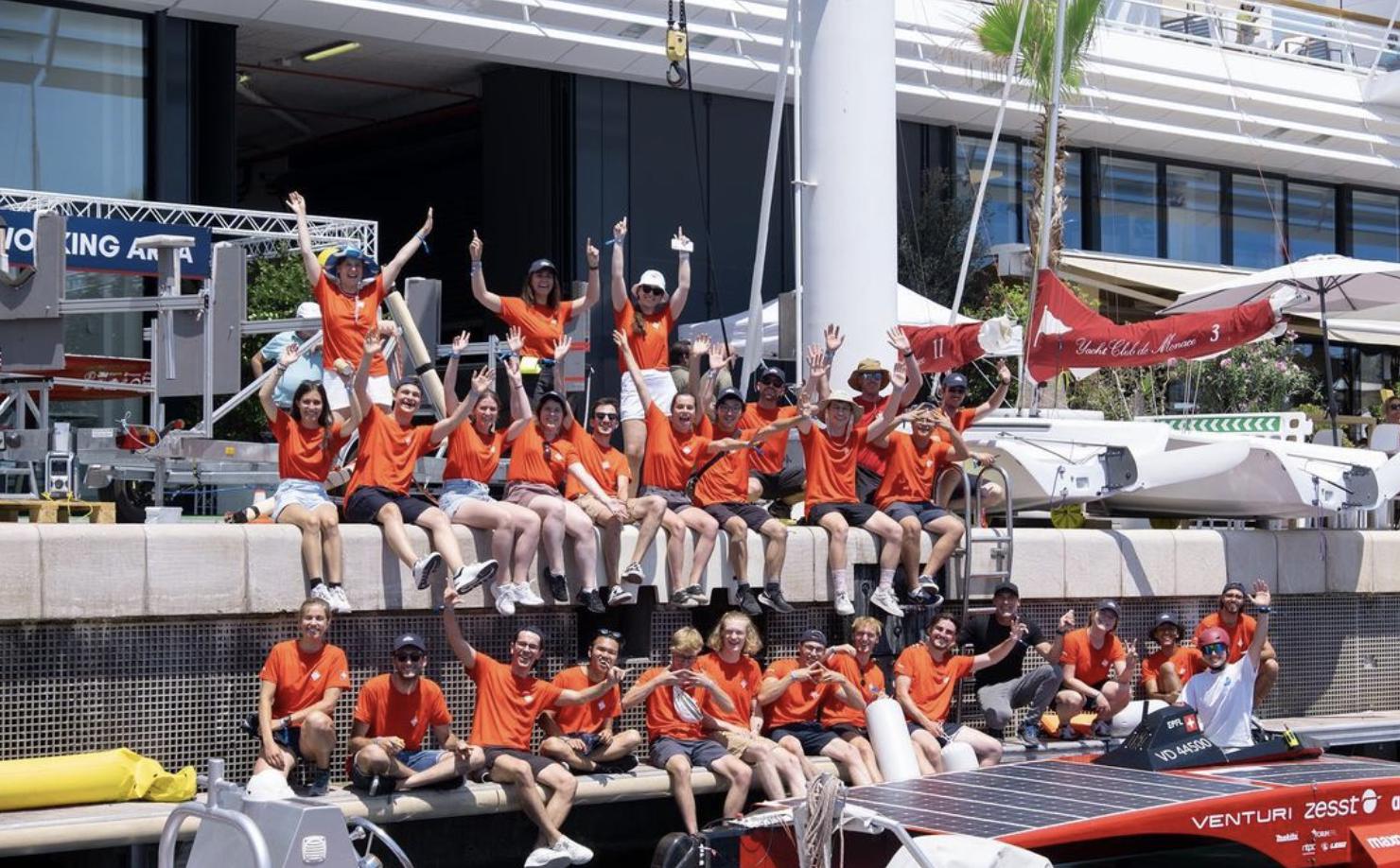
Once again, the EPFL team was successful in its participation, coming in second overall in its category, in addition to taking first place in the speed event and second in the slalom.
The 63-strong team can be proud of this achievement, which is a testament to the more than 50,000 hours of collective work that went into the design, manufacture and testing of their impressive solar boat.
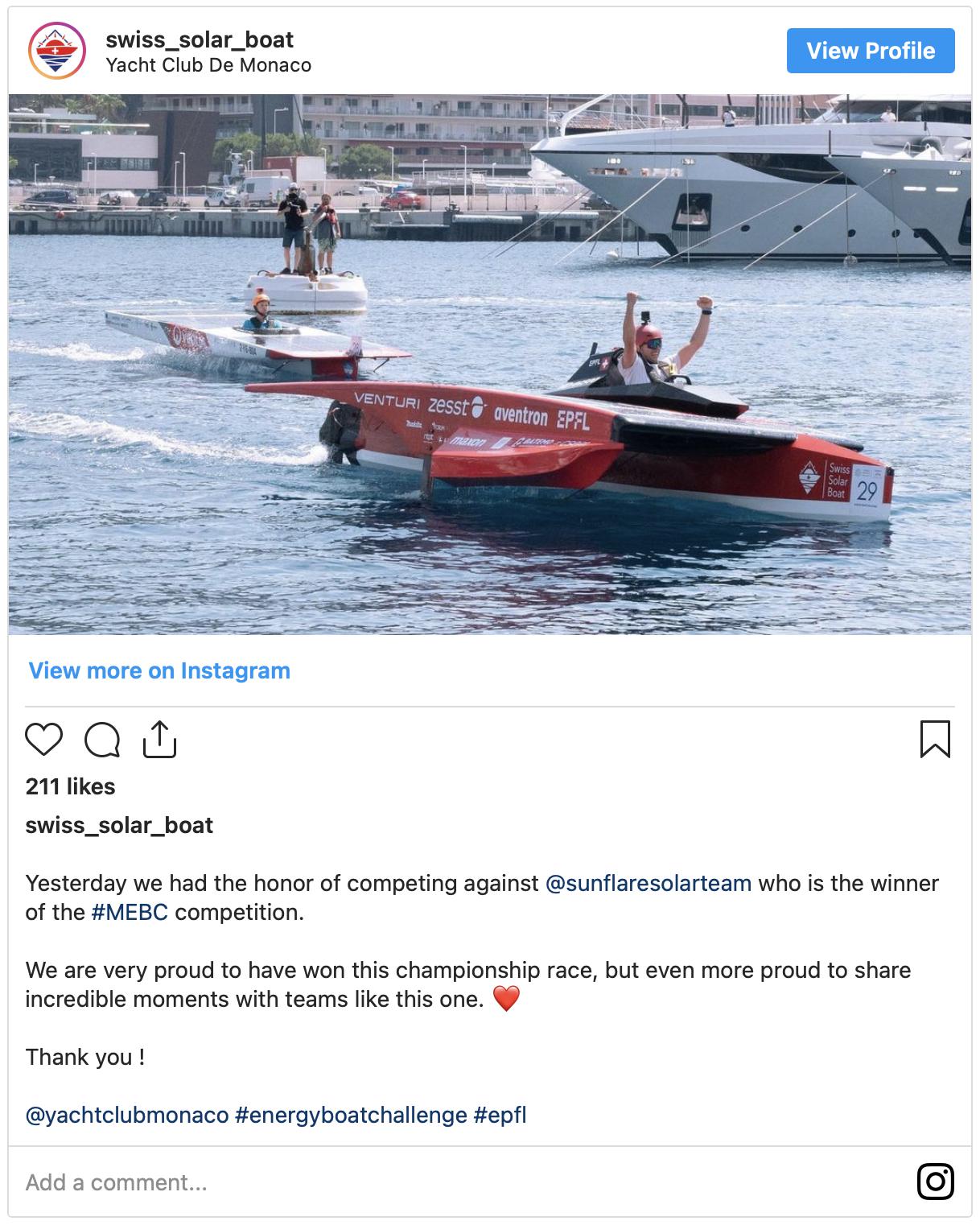
Imposing as much by its volume as by the technical challenge it represents, a project of this complexity is in line with EPFL's desire to reinforce an active and interdisciplinary pedagogy within the training of its future engineers and architects.
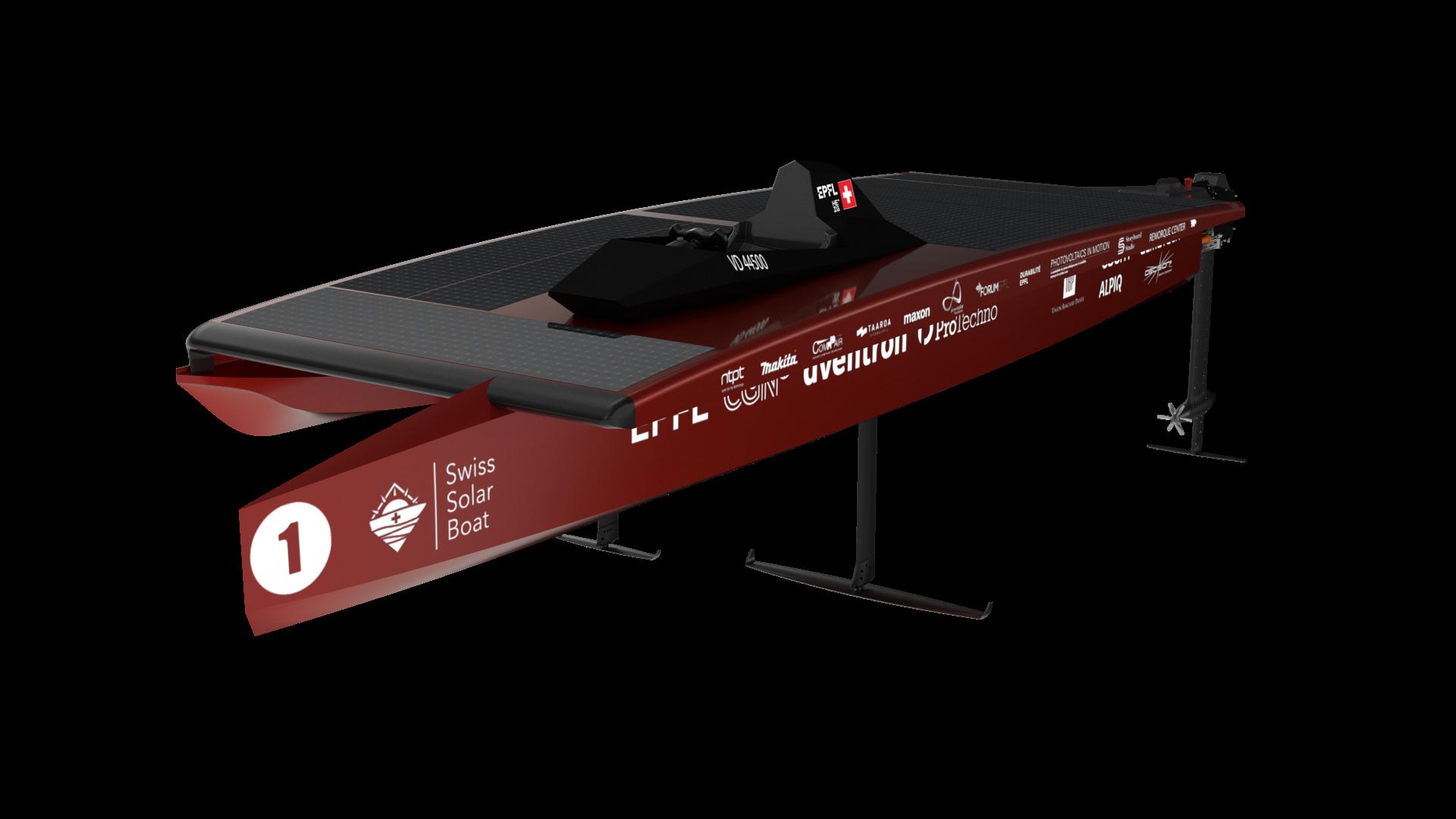
The MAKE initiative
In practice, this translates into the progressive implementation of a complex ecosystem whose origins date back to around 2014 when an EPFL team participated for the first time in the HydroContest competition with, at the time, a small bifoiler measuring barely 2.50m and now considered the precursor of the Dahu.
These first attempts allowed Pascal Vuilliomenet, Project Manager at EPFL, and his team to evaluate and pilot a variety of formats to best accompany and support this type of teaching, giving birth to the MAKE educational initiative.
Today, this framework provides students with the Discovery Learning Laboratories' network of state-of-the-art spaces and equipment, while mobilizing a growing panel of experts composed of professors, coordinators, coaches, and heads of professional workshops to support them.
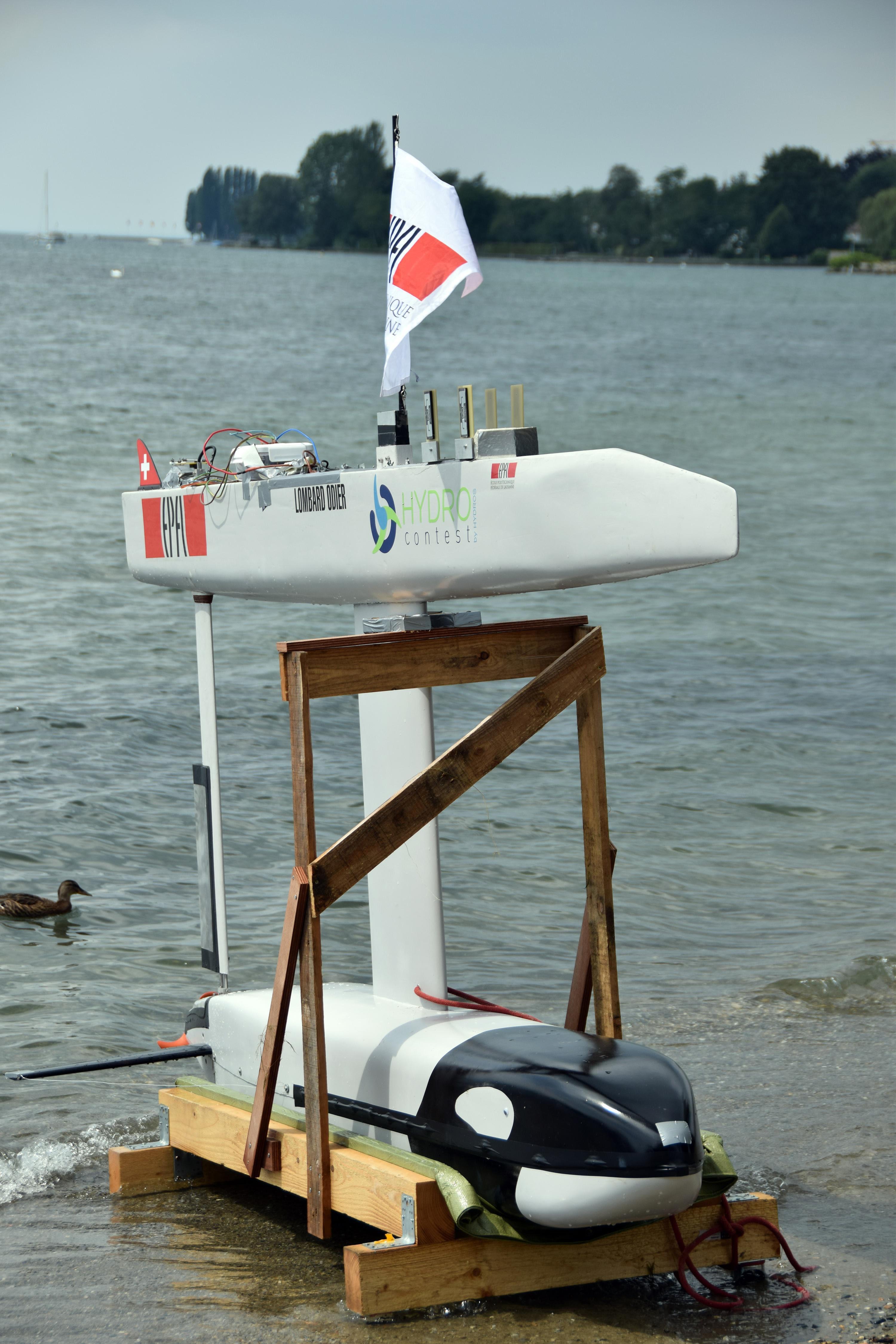
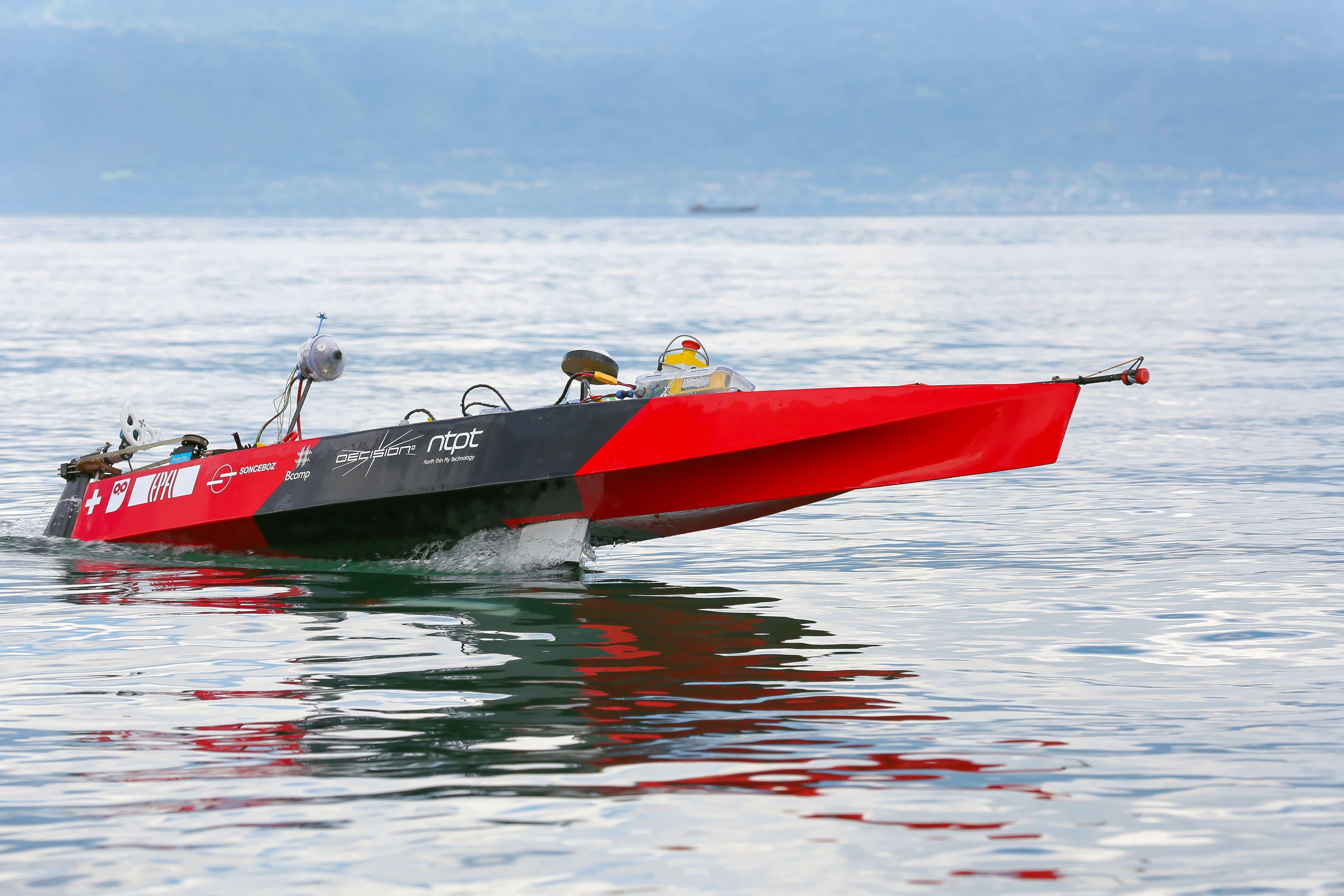
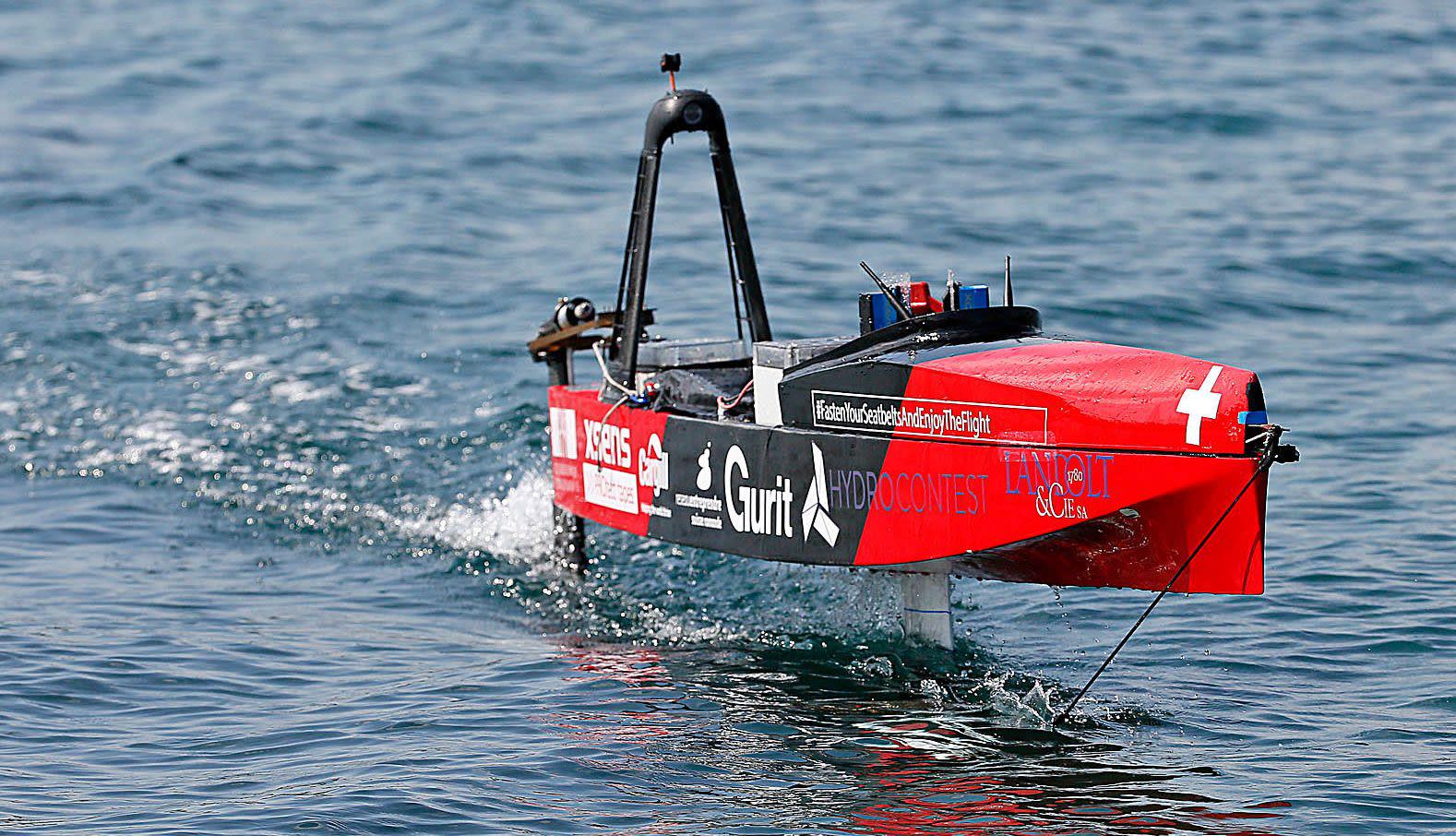
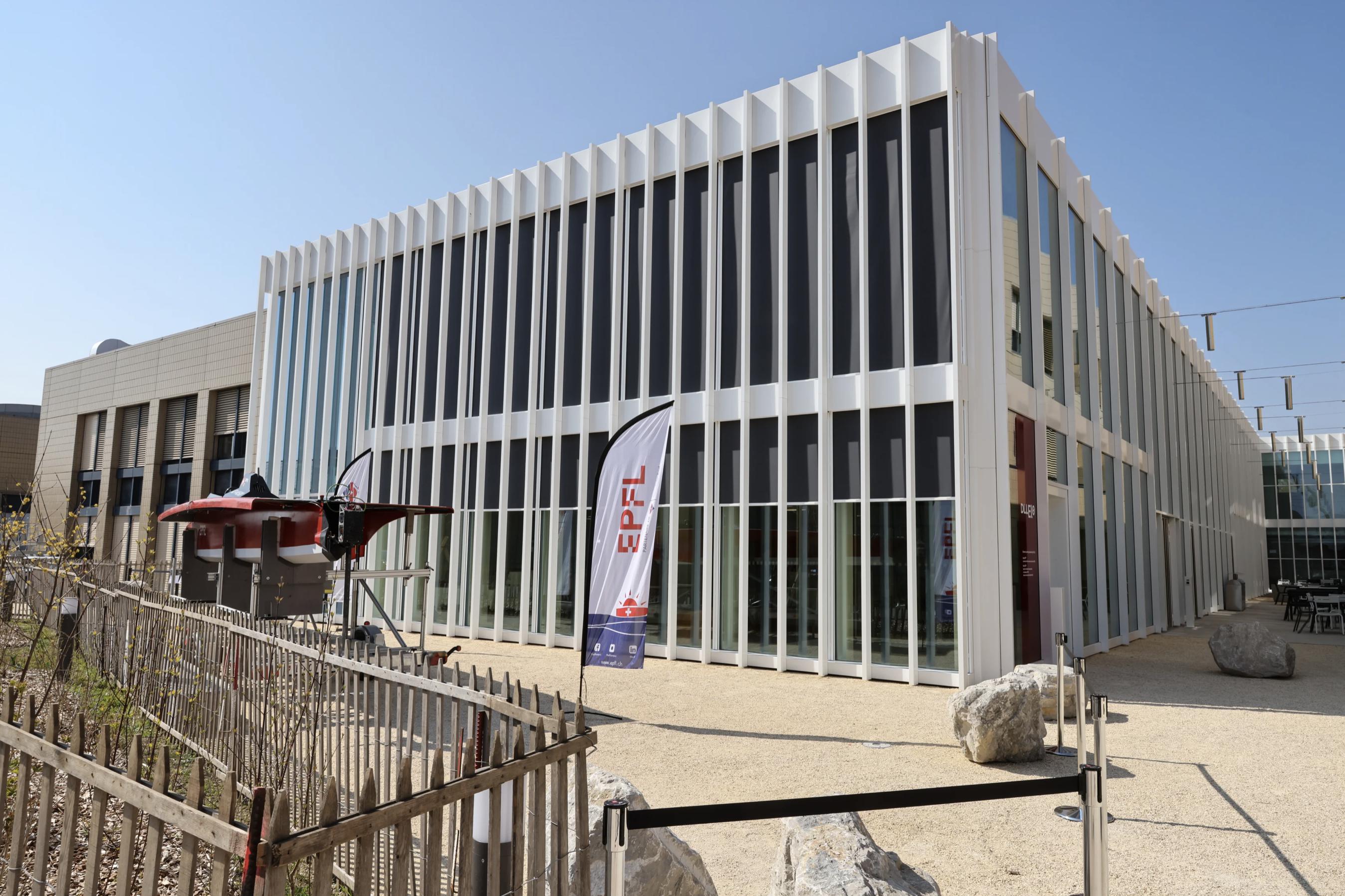
Mentoring and knowledge transfer
Robin Amacher is a naval architect and materials engineer, involved in interdisciplinary projects since their genesis at EPFL, he has been coordinating the Swiss Solar Boat project for three years, following the team's growth with passion, semester after semester.
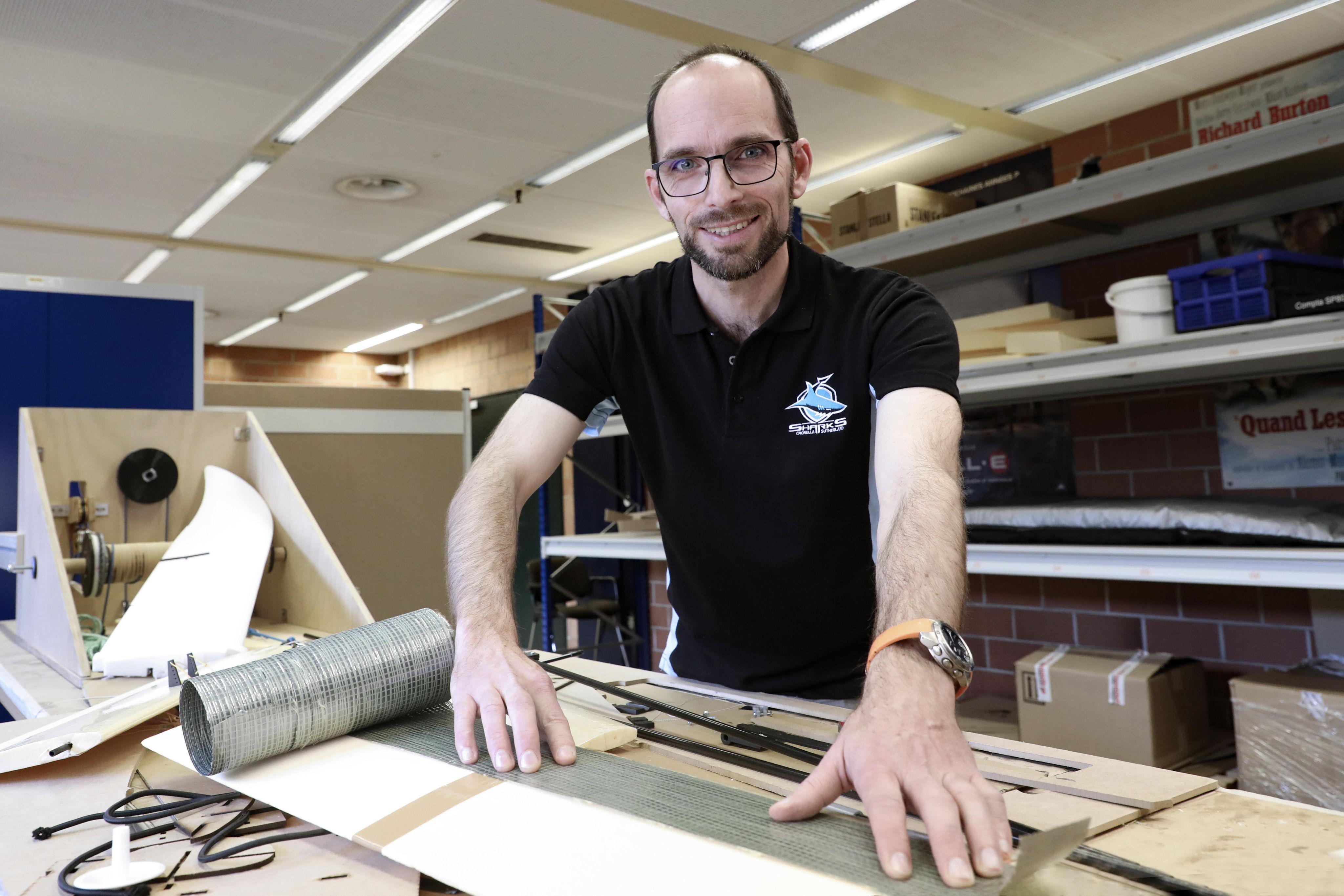
One of the big challenges is knowledge transfer
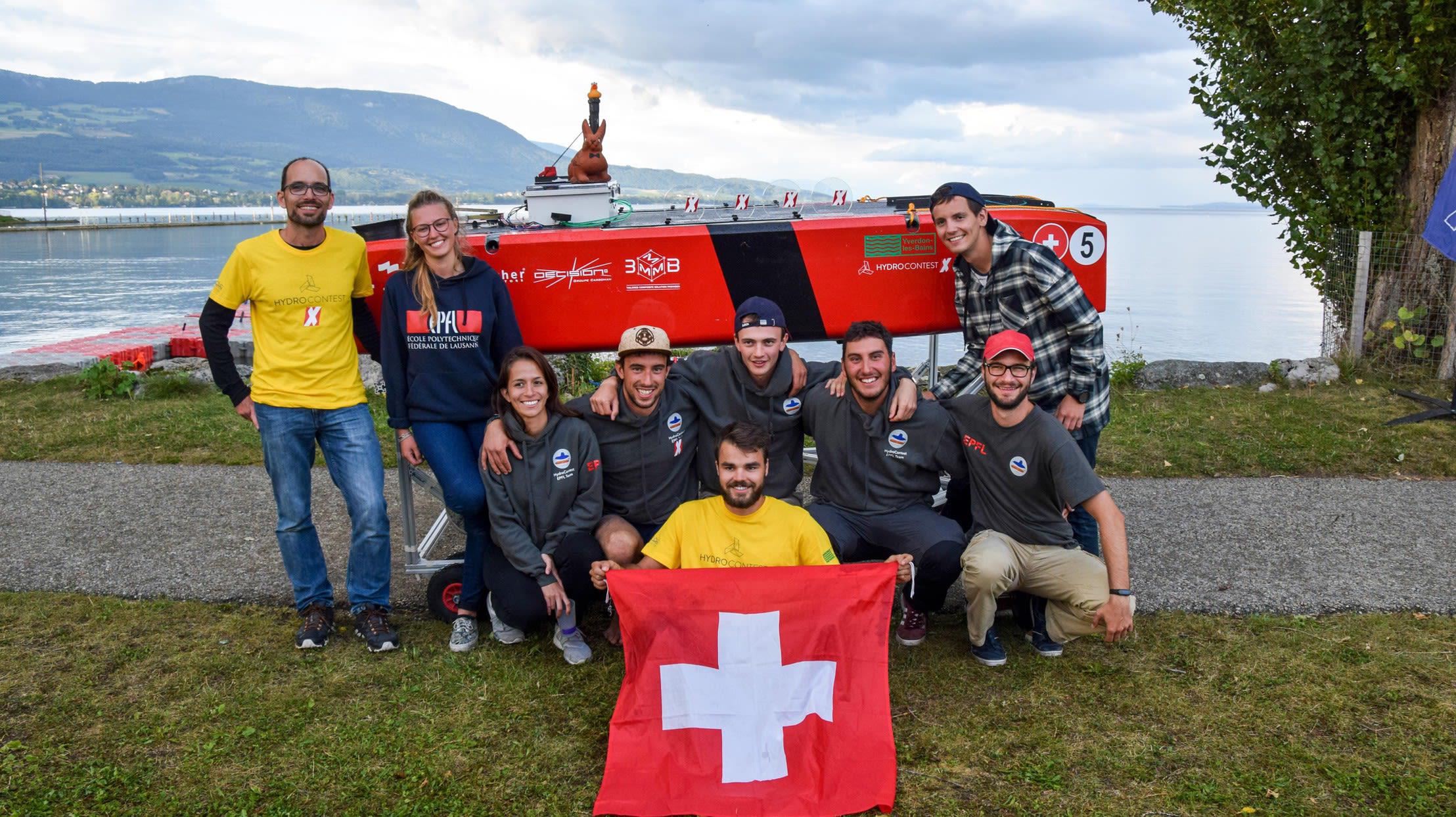
"With the most qualified students graduating and leaving, we have to make sure that the information is passed on to the younger students. With a high turnover, it is already a challenge to maintain the level acquired the previous year, and even more so to increase it," he emphasizes.
Indeed, between the first participation of EPFL students in the Monaco Energy Boat Challenge in 2021 and this summer, it is an almost entirely new team that has taken over the project.
Building upon what they have learned
To compete in the 9th edition of the Monégasque competition, the students decided to keep their design based on a prao (a type of Indonesian multihull outrigger canoe) and to push its limits even further.
The Dahu was therefore subjected to a thorough analysis to identify how to improve electronics and how to obtain a boat that could be more hydrodynamic, lighter and more resistant.
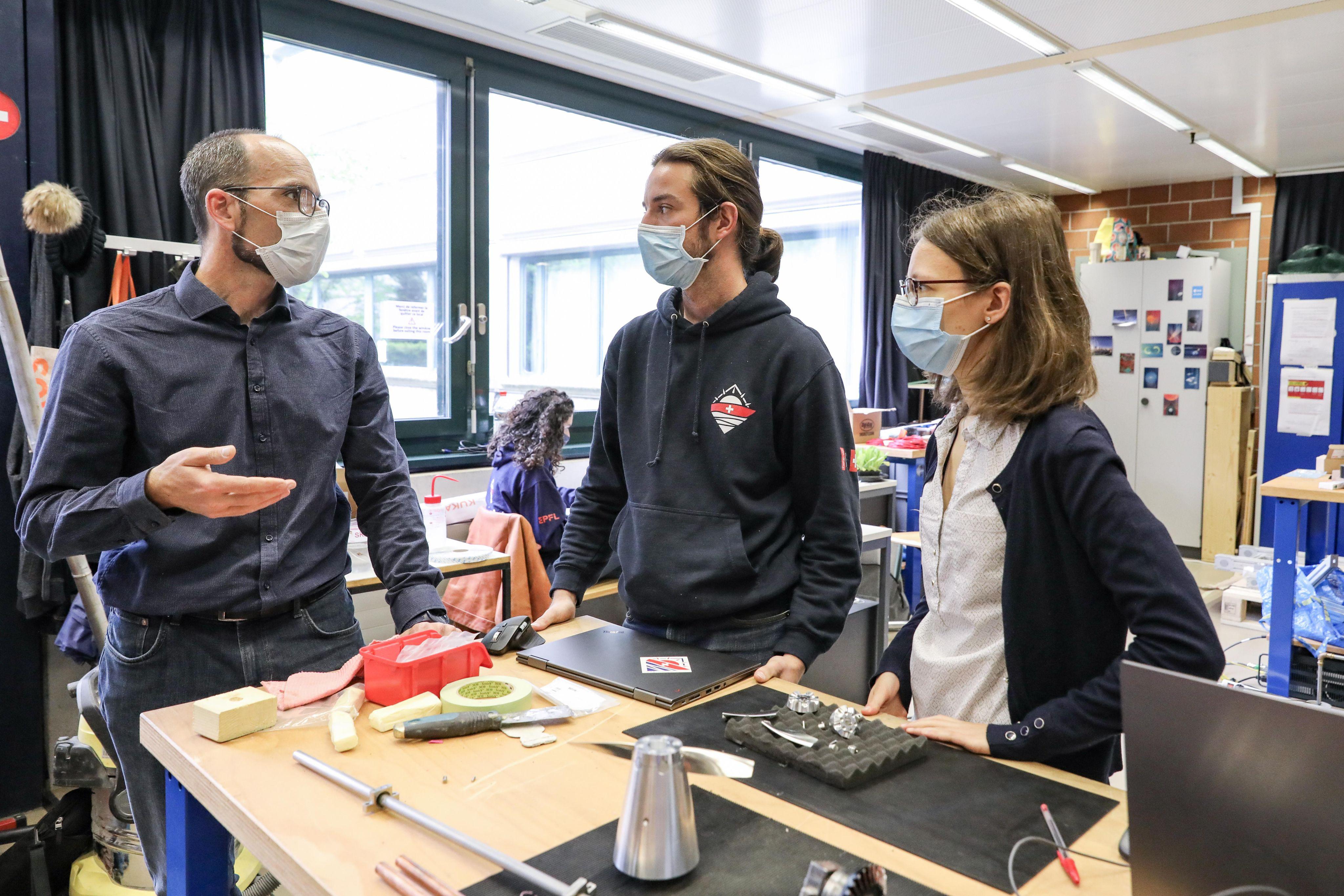

"The Dahu v1 was designed essentially from scratch, even though we had the baby-prao to validate certain concepts. For this year's challenge, we had to start with a design that was already well developed, identify its strengths and weaknesses, and optimize it. It's a slightly less sexy exercise than designing something entirely new, but it makes a lot of sense in many ways: it's frequently found on the job, the environmental footprint is greatly reduced, and the level of performance ends up being superior to a new prototype," explains Robin Amacher.
A major undertaking
High-power electronics, contra-rotating propulsion system, hydro-foils, self-healing leading edge, solar panels, low-power electronics and an origami-like composite cockpit...all ambitious challenges to be met by the 63 students of the Swiss Solar Boat project from 11 EPFL sections, strategically divided into six dedicated technical sub-teams.
To achieve such high-standards, students take part in Bachelor or Master projects that cover the different developments necessary for the realization of the overall vessel. For the year 2021-2022, 24 projects were proposed by the association (the projects are often constituted around a student association).
This year, the credited projects were designed around the optimization needs of the boat's composite structure, with, for example, Bachelor projects dedicated to the design of ultra-light casings, to the upper structure of the propulsion or to the characterization and optimization of the cockpit. Other semester projects focused on a complete review of the on-board electronics by proposing to the students to carry out a global analysis or to develop a universal microcontroller for data acquisition systems.
In total, 43 members of the team were credited within specific projects, combining research and practical work. In this formula, the coordinator plays a key role as he ensures the coherence of the different sub-tasks and the integration of the deliverables into the central project.
Months of efforts that paid off
According to Robin Amacher, the objectives were fully met.
"Overall, there was a real improvement: the CAN system was much cleaner and more reliable, the new vertical-lateral sail assembly provided impressive maneuvering capability (although it did reveal another problem: the actuation motor was under a lot of stress and would go into "safety" mode to avoid burning out, quite quickly, causing a loss of lift in the lateral), and the new rear assembly was much more hydrodynamic, light and functional."
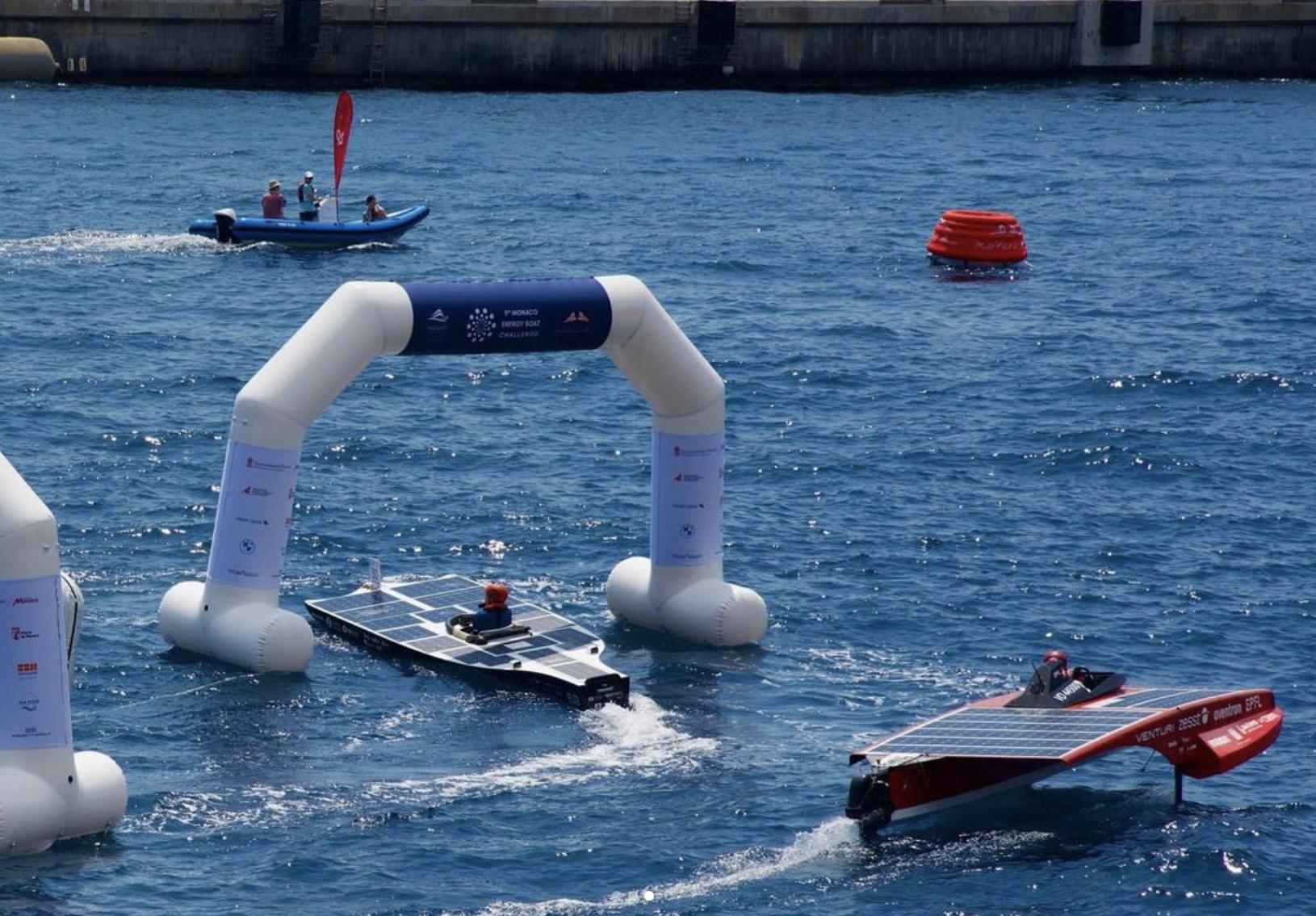
In terms of logistics, competing on the French Riviera requires that the prototype be disassembled and transported to the competition venue.
Once on location, the teams have one day to reassemble their prototypes. Up to the starting line, students make final adjustments in order to pass a technical inspection carried out by experts from the naval industry: a sine qua non condition to enter the competition and confront their concept with the realities of the terrain.
After that, the competition can begin! The principality's port becomes the backdrop for a series of intense events designed to put to the test the performance and limits of the vessels put forward by teams from all over the world competing on endurance, speed, and maneuverability.
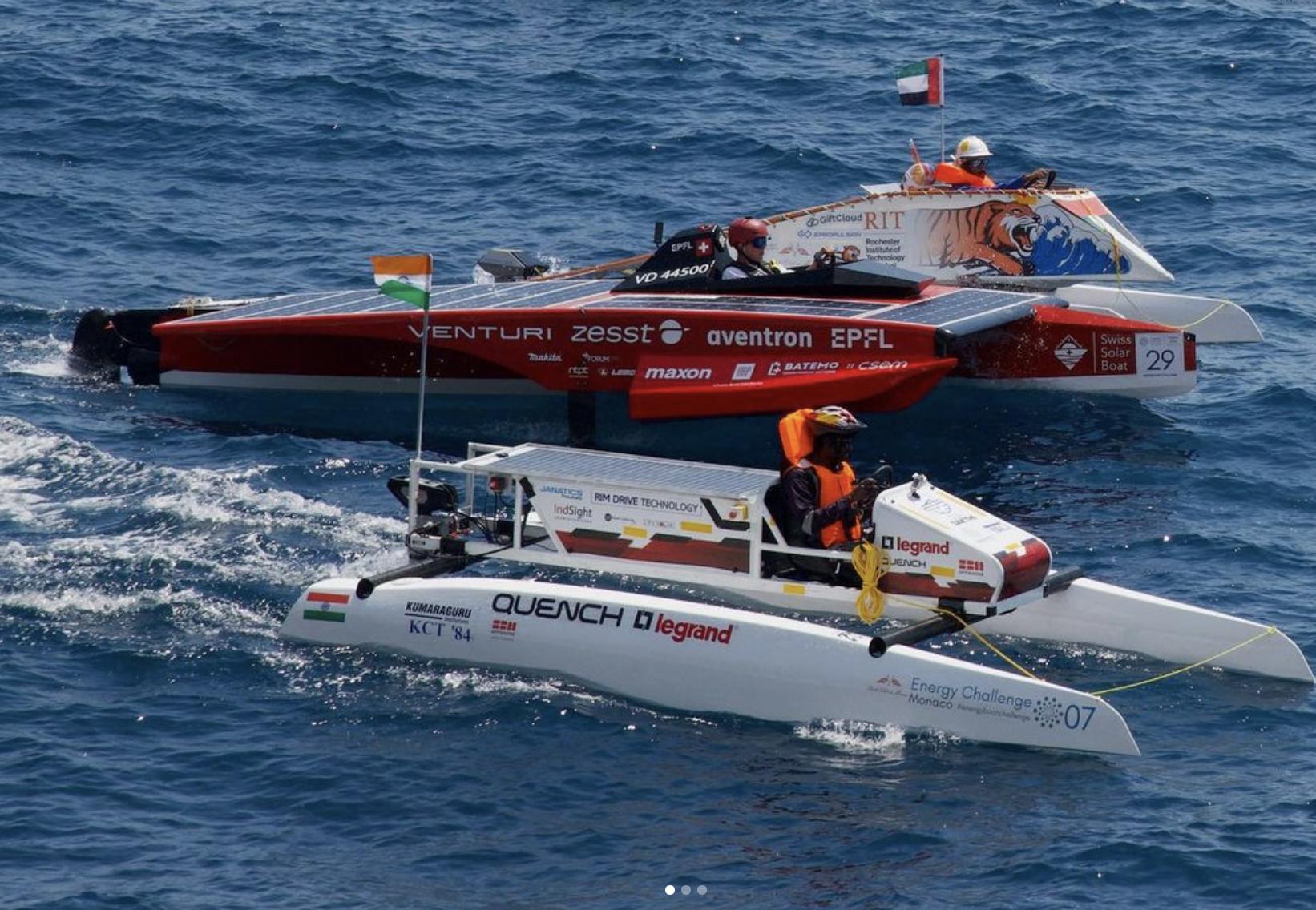
"The duels in the harbor were incredible, of crazy intensity. When the side actuator wasn't saturating, the Dahu was capable of tight turns on foils at high speeds. Being able to beat Sunflare -who are in their 8th appearance and are all alumni- on a course where they excel was the icing on the cake. One of the things that really impressed us was the stability of our boat in the waves", recalls Robin Amacher.
With Monaco barely behind them, the students are already planning their next objectives. A set of deliverables has already been drawn up, including a switch to hybrid technology combining solar energy and hydrogen.
And sustainability will remain at the heart of the team's concerns. Using the Dahu to refine its design and collect relevant data, the focus will be put on the strategic use of renewable energy to achieve continuous operation over a longer period of time and to carry up to three passengers.
To be continued...!
The MAKE initiative
MAKE is an educational initiative that aims to provide students with the necessary resources for the implementation of interdisciplinary projects and to strengthen project-based learning at EPFL through concrete projects that students carry out individually or in teams.
These projects reinforce disciplinary learning through practical application and are conducive to the development of know-how and transversal skills essential both for their academic success and for their entry into professional life.
By being immersed in conditions similar to those encountered in industry and research, students gain autonomy, learn to collaborate and communicate, acquire skills in project management, all the while mobilizing and applying the knowledge acquired through their overall curriculum, thus complementing and reinforcing their learning outcomes.
To find out more:
Questions regarding the initiative can be addressed to Julien Delisle, Coordinator of the MAKE initiative or to Pascal Vuilliomenet, Project Manager.